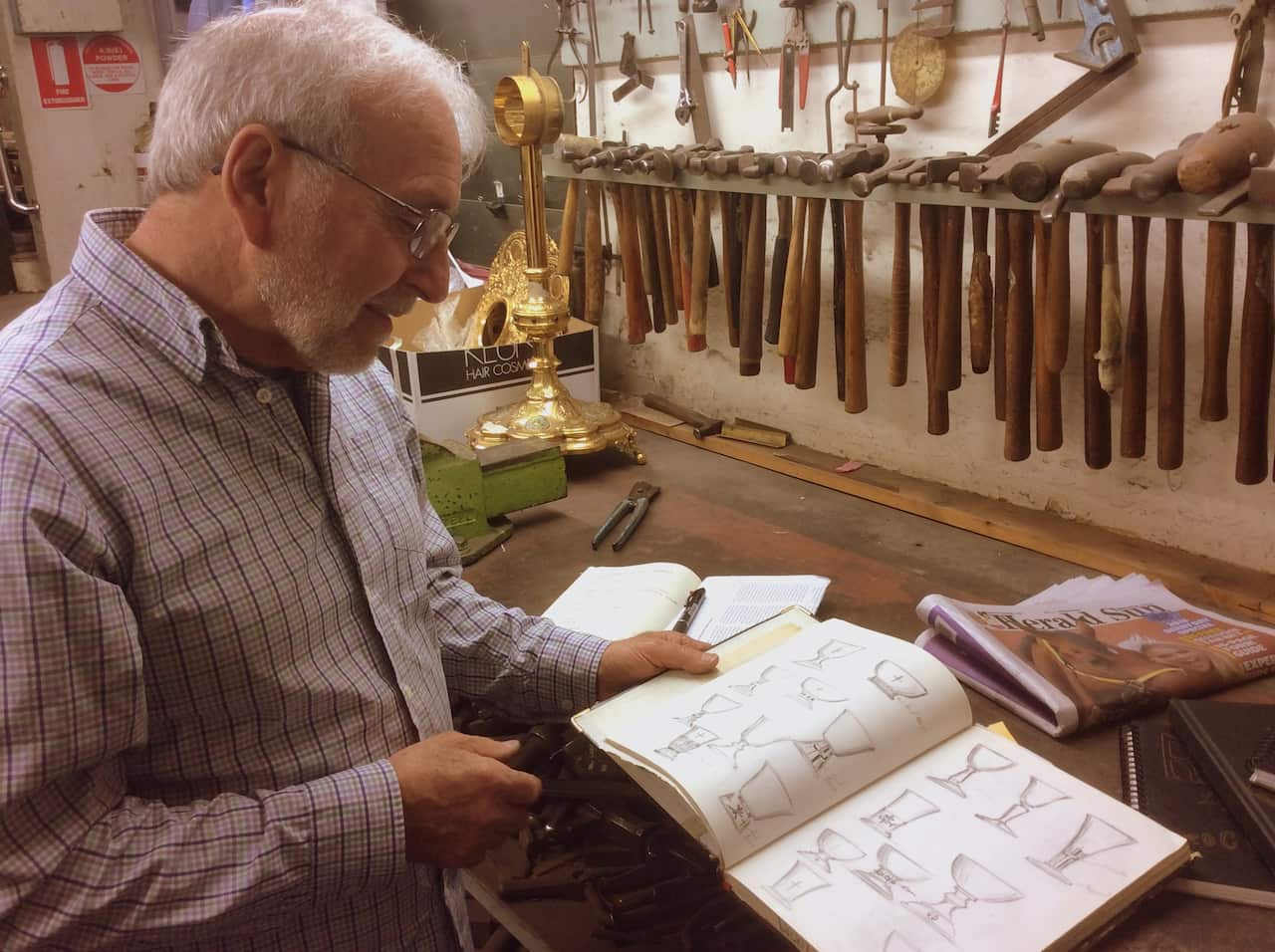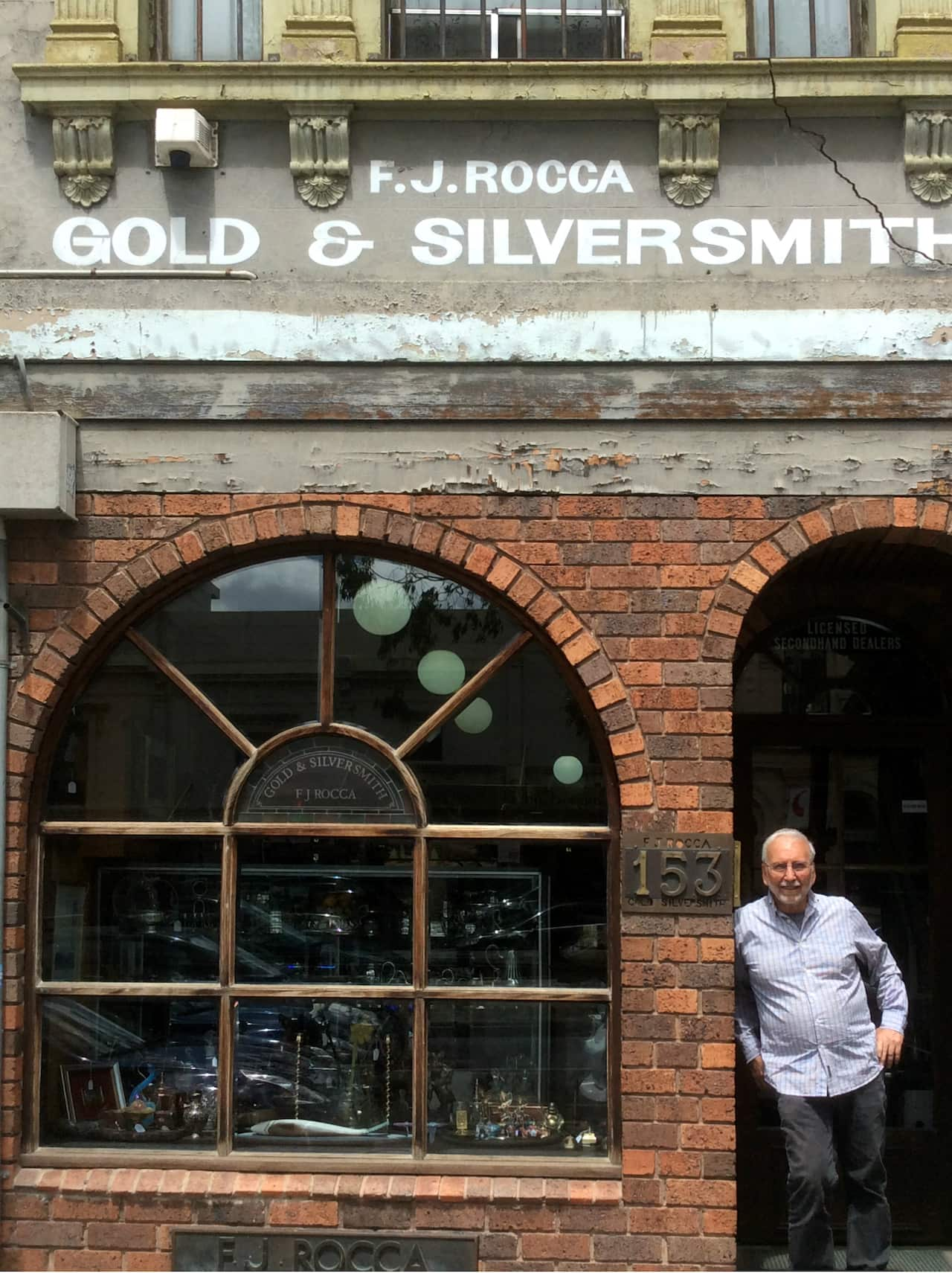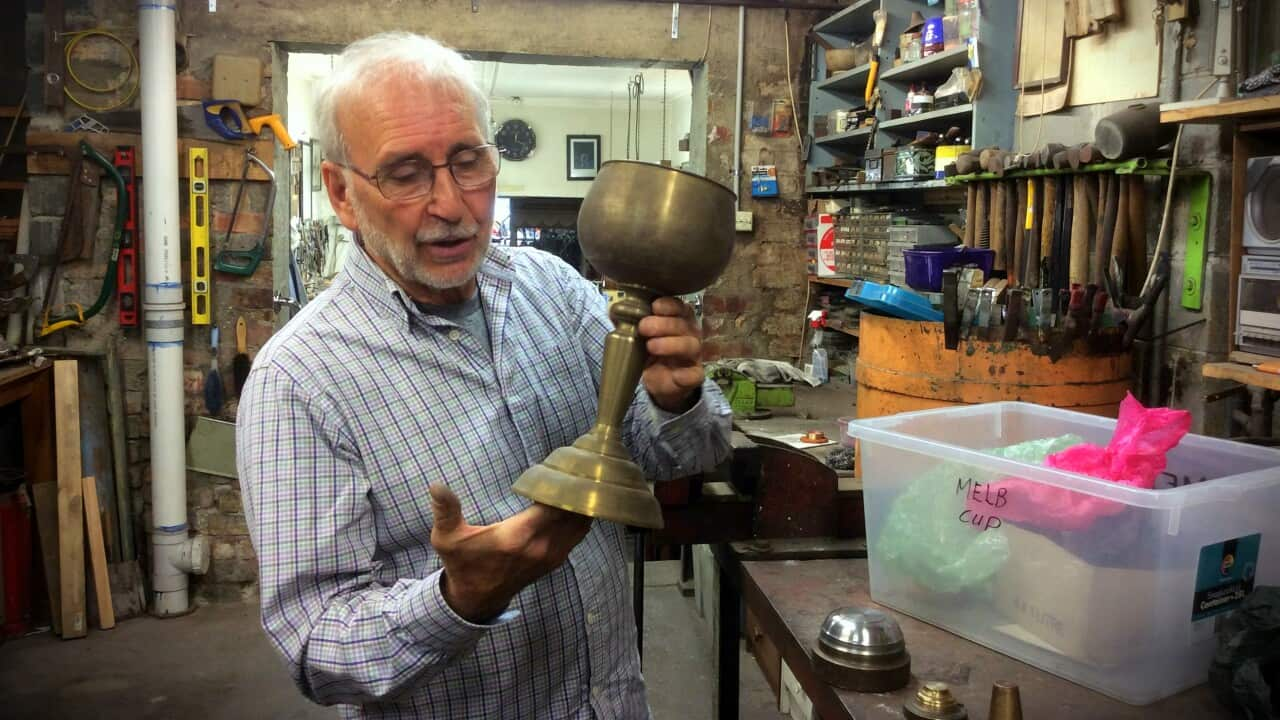The story behind the Melbourne Cup’s trophy has a surprising amount to do with Australia’s migrant history.
It was a migrant from Switzerland, Edward Fisher, who produced the first Australian-made trophy in 1876, and it was Fortunato ‘Lucky’ Rocca from Italy who made the cup for 30 years until 2000.
Before the trophy was made in Australia, it was regularly put together in England and shipped Down Under. And before even the giving of trophies, the race’s winner would receive a golden watch.
A brief history
In the 1860s Victorian craftsmen complained that the trophy should have been made locally rather than abroad, so in the following years the trophy changed design, and manufacturer multiple times, almost disappearing altogether in the dispute.
In 1919, James William Steeth, a gold and silversmith with a workshop in the Melbourne CBD, gave the Melbourne Cup its distinctive three-handled design that has survived until today.
Making the Melbourne Cup was a family business for many years, as Steeth and subsequently his son Maurice were in charge of making the trophy.
(VIDEO:Fortunato 'Lucky' Rocca tells SBS Italian about how the Melbourne Cup was made for decades)
Lucky enters the race
It was in that busy family workshop, that a 14-year-old Fortunato ‘Lucky’ Rocca, happened to land.
He was a talented student and “very good with his hands” as Rocca tells SBS Italian that his teachers used to say. So, when a position at J.W. Steeth and Sons opened up, Rocca got it straight away.
Rocca was not involved in the making of the cup for his first three years with the company, but his luck changed in 1968 at the age of 24, when he took over the hallowed task.
“It was a great privilege, obviously it was one of the biggest thrills,” says Rocca. “The first [cup] that I made by myself, it was fantastic”
From then on, he was in charge of the making of the Melbourne Cup for the next 30 years, until 2000.
“The Melbourne Cup was a holiday but not for us,” he says. “The boss would only let us stop for the duration of the race.”

As Australian as the Melbourne Cup
Originally from Nicastro in Calabria, Rocca migrated to Australia in the early 1950s with his family. After living in Port Melbourne, the family moved to Brunswick and finally to Carlton, in the heart of the Italian community, where his dad opened a grocery store in 1956.
Rocca spent his early years in Carlton, close to the rest of his Italian cousins but later “growing up in the streets” and going to school with many other Italian, Greek and Jewish children. His English improved speedily over that time, and soon his Calabrese dialect made way for a ‘true blue’ Australian English.
That was when Fortunato became known as ‘Lucky’, the literal translation of his Italian name.
“Even when I was a kid, I was known as Lucky and it was not an Italian name as such,” he says. “Even my mum and dad used to call me Lucky.”
Lucky has never returned to Italy, but during his apprenticeship he studied Italian art history. Two names stuck with him from that time: Michelangelo and Benvenuto Cellini, great masters in metal work and sculpture.
Today Rocca still works in the same workshop on Elgin Street in Carlton. He makes chalices, ceremonial maces, religious items and other trophies, but not the Melbourne Cup anymore.
“My dad was very proud and my mum was very proud too because of the Melbourne Cup,” he says. “But I think they were proud anyway as long as we were working. They came with nothing. I still have my dad’s suitcase.”

